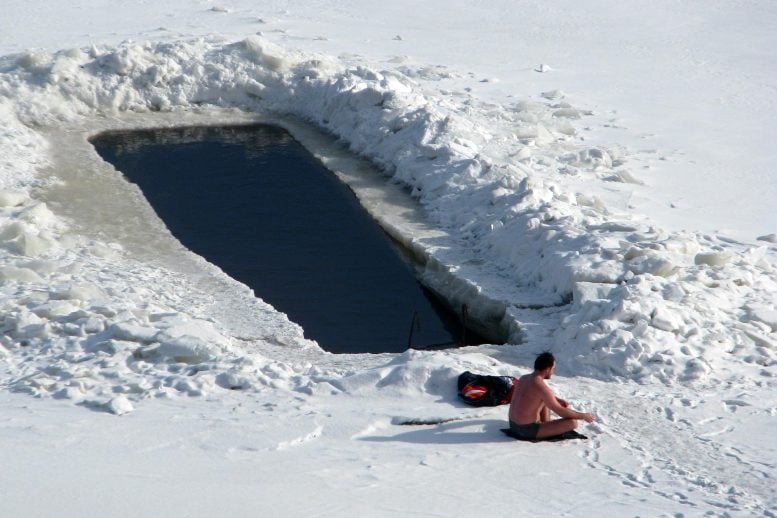
Individuals without the α-aktinin-3 protein in their muscle fibers have a higher proportion of resilient slow-twitch muscle fibers, resulting in better endurance and cold tolerance.
Almost one in five people lack the protein α-aktinin-3 in their muscle fiber. Researchers at Karolinska Institutet in Sweden now show that more of the skeletal muscle of these individuals comprises slow-twitch muscle fibers, which are more durable and energy-efficient and provide better tolerance to low temperatures than fast-twitch muscle fibers. The results are published in the scientific journal The American Journal of Human Genetics.
Skeletal muscle comprises fast-twitch (white) fibers that fatigue quickly and slow-twitch (red) fibers that are more resistant to fatigue. The protein α-aktinin-3, which is found only in fast-twitch fibers, is absent in almost 20 percent of people – almost 1.5 billion individuals – due to a mutation in the gene that codes for it. In evolutionary terms, the presence of the mutated gene increased when humans migrated from Africa to the colder climates of central and northern Europe.
“This suggests that people lacking α-aktinin-3 are better at keeping warm and, energy-wise, at enduring a tougher climate, but there hasn’t been any direct experimental evidence for this before,” says Håkan Westerblad, professor of cellular muscle physiology at the Department of Physiology and Pharmacology, Karolinska Institutet. “We can now show that the loss of this protein gives a greater resilience to cold and we’ve also found a possible mechanism for this.”
For the study, 42 healthy men between the ages of 18 and 40 were asked to sit in cold water (14 °C) until their body temperature had dropped to 35.5 °C. During cold water immersion, researchers measured muscle electrical activity with electromyography (EMG) and took muscle biopsies to study the protein content and fiber-type composition.
The results showed that the skeletal muscle of people lacking α-aktinin-3 contains a larger proportion of slow-twitch fibers. On cooling, these individuals were able to maintain their body temperature in a more energy-efficient way. Rather than activating fast-twitch fibers, which results in overt shivering, they increased the activation of slow-twitch fibers that produce heat by increasing baseline contraction (tonus).
“The mutation probably gave an evolutionary advantage during the migration to a colder climate, but in today’s modern society this energy-saving ability might instead increase the risk of diseases of affluence, which is something we now want to turn our attention to,” says Professor Westerblad.
Another interesting question is how the lack of α-aktinin-3 affects the body’s response to physical exercise.
“People who lack α-aktinin-3 rarely succeed in sports requiring strength and explosiveness, while a tendency towards greater capacity has been observed in these people in endurance sports,” he explains.
One limitation of the study is that it is harder to study mechanisms in human studies at the same level of detail as in animal and cell experiments. The physiological mechanism presented has not been verified with experiments at, for example, the molecular level.
Reference: “Loss of α-actinin-3 during human evolution provides superior cold resilience and muscle heat generation” by Victoria L. Wyckelsma, Tomas Venckunas, Peter J. Houweling, Maja Schlittler, Volker M Lauschke, Chrystal F. Tiong, Harrison D. Wood, Niklas Ivarsson, Henrikas Paulauskas, Nerijus Eimantas, Daniel C. Andersson, Kathryn N. North, Marius Brazaitis, Håkan Westerblad, 17 February 2021, American Journal of Human Genetics.
DOI: 10.1016/j.ajhg.2021.01.013
The study was a collaboration with research groups at the Lithuanian Sports University in Kaunas, Lithuania, and the University of Melbourne in Australia. It was supported by grants from the Swedish Research Council, the Swedish National Centre for Research in Sports, the Research Council of Lithuania, the Swedish Society for Medical Research, the Jeansson Foundations, the Swedish Heart and Lung Foundation and Australia’s National Health and Medical Research Council. Co-author Volker Lauschke is the founding CEO and shareholder of HepaPredict AB and has been a consultant for EnginZyme AB.

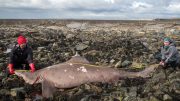

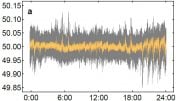



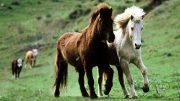
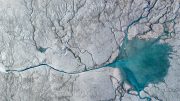
And in this week’s episode of “It’s All Genetic with catherine yronwode,” we learn that Ray Rice required no special moral or virtue-based advantage to be able to swim in the frigid waters off the Mendocino coast — he probably just lacked the protein α-aktinin-3. He would be the first to laugh upon hearing this, of course, delightful Hoosier that he was. And so, today we give an “It’s All Genetic” hand-on-heart salute to the gone-but-not-forgotten members of the Polar Bear Club — a club i could never join. “Just try! Just try!” they said. “Gurus sit in snow!” “No Steve Gerbers!” my daughter and i screamed in response as we jumped into the merely cool waters of Little Creek. I tried! I tried. And i failed, because genetics is real and the α-aktinin-3 is strong within me. And of course it was the Karolinska Institutet that published this paper — bold and cold Swedes all!
I grew up loving the long, cold, dark Michigan Winters. I still fiercely hold that love. I think I’ll go ice fishing!
I wonder how this relates to “eskimos” who lived happily eating nothing but whale blubber and seal meat? Now they are stuck in warm homes, eating carbos and guzzling colas. What used to be their saving grace in the wild, becomes their disability in civilization.
I really enjoy both hot and cold.
I will forward this to a friend who never understands why I prefer the cold and dark of winter to hot sunny days of summer. I always attributed it slightly to being born and mostly raised in Northern USA, then a dna ancestry test revealed previously-unknown Nordic predecessors. So maybe nature AND nurture?